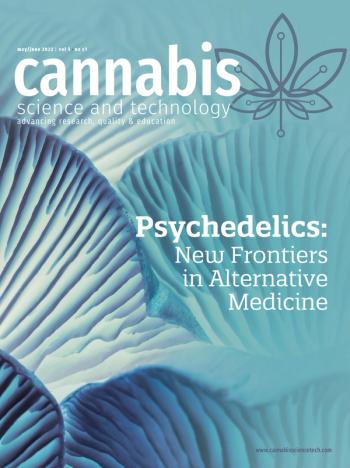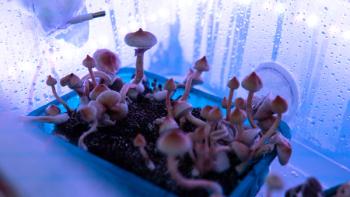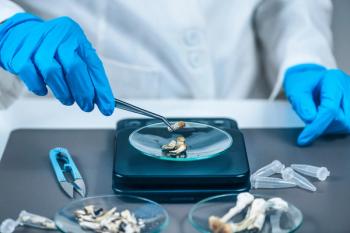
Kevin McKernan, Chief Scientific Officer and Founder of Medicinal Genomics, shares some insight behind his recently published paper related to cannabis trichomes and positive results on rapid yeast and mold plates.
Cannabis provides a conundrum for treating pediatric oncology: While preclinical research provides clear mechanisms of action for cannabis’s potential to treat pediatric oncology, clinical studies are difficult to conduct, due to the associated ethics. Here, we take a closer look at the state of current research.
A New Study Demonstrates the Efficacy of Cannabinoid Mixtures for the Treatment of Parkinson's Disease
Highlights from Canna Pharma 2022: Driving Cannabis Science and Therapeutics Forward

Kevin McKernan, Chief Scientific Officer and Founder of Medicinal Genomics, shares some insight behind his recently published paper related to cannabis trichomes and positive results on rapid yeast and mold plates.

One of the recurring challenges in the medical cannabis space is the difficulty in conducting research because of the plant’s Schedule I status. Although there are some researchers diving in with special licenses to conduct clinical studies, there are others that are looking at real-world users to supply data. For instance, Dr. Daniel J. Kruger is a Research Investigator with the Population Study Center at the University of Michigan and Principal Investigator on a study being conducted with the Releaf app. Here, Dr. Kruger shares his interest and background in these types of surveys and his plans for the current study with Releaf on chronic pain.

In his presentation for the psychedelics track at Cannabis Science Conference East 2022, James Schwartz, BSN, LNC, presented “A New Beginning for an Old Therapy: Case Series Review on the Treatment of PTSD and Other Psychiatric Disorders with Psilocybin and Other Psychedelics.” He reviewed the current research and clinical trials studying the effects of psilocybin, plus side effects, potential uses, latest trends, disorders currently being studied, and potential future applications. Schwartz was a trauma trained nurse who worked in the Trauma/Critical Care ICU at Oregon Health and Science University. He is an experienced medical legal consultant and CEO of Cascade High. Here are some highlights from his session.

A recent study disclosed how younger generations are experimenting with cannabis and hallucinogenic use at the highest levels according to data from previous years.

In the work presented here, the authors pursue a more detailed understanding of the naturally rare occurring cannabinoid analogue, hexahydrocannabinol (HHC), by exploring the safety profile using a third-party lab to produce preclinical in vitro safety profile data. The purpose of these studies is to demonstrate HHC as a safe cannabinoid for potential human consumption.

This article examines why we should be studying the cannabinoids beyond THC and CBD in order to explore their potential medical value.

Understanding the biochemical and physical process that comprise and control leaf-level physiology gives us deep insight into the plant, which may convert directly to cultivation practices.

In this article, Ruth Fisher, PhD, presents some of the research being explored with cannabis and autoimmune disorders.

In this interview, Dr. David “Dedi” Meiri discusses his important work at Technion, challenges and opportunities in cannabis research, and a preview of his upcoming presentation for CSC East.

In the work presented here, the authors evaluated the effects of variable red-light exposure on the phytochemical content of four Group III cannabis cultivars.

View our interactive May/June 2022 digital edition.

In this interview, Donaghue Woodman, Head of Research and Development and Chief Medical Information Officer at Cannsun, provides an in-depth look at their current clinical trial on the effects of psilocybin in treating a prevalent yet unresolved issue in South Africa.

A brief summary of a new peer-reviewed paper detailing the assembly of a highly contiguous draft reference genome for the Psilocybe cubensis mushroom by Kevin McKernan, Medicinal Genomics Chief Science Officer, and colleagues.

An overview of the therapeutic role of psychedelics that goes back thousands of years, as well as the new research and the application of microdosing principles that have created renewed interest in the power of psychedelics.

Colombian-based public health company, Khiron Life Sciences Corp., published the results of its first clinical study on the use of medical cannabis prescribed to patients in treating chronic pain.

This article investigates the chiral method development screening for the enantiomeric separation of synthetic CBD on polysaccharide-based chiral stationary phases with both normal-phase and reversed phase mobile phases, using HPLC and UHPLC.

Part II of a guided tour through the protein structure and function influence of cannabinoid receptor 2 (CB2R) on cannabinoid signaling.

AC Braddock, the CEO of Eden Labs, shares a preview of the talk she plans to give at Cannabis Science Conference West as well as other industry insights.

In this article, Ruth Fisher explores the prominence of cannabis being used to treat chronic pain patients and data from studies detailing how beneficial it can be.

Dr. Uwe Blesching provides insight into the exploration of cannabis as a supplement for chronic pain treatment, opioid addiction mitigation, and the mind-body balance.

Dr. Woody, chief executive officer of 180 Life Sciences, discusses in this interview the current research surrounding synthetic cannabinoids as a treatment for chronic pain, as well as the development of a new type of medication that would have the potential to offer the benefits of cannabis without any undesirable effects.

Dr. Denise C. Vidot, an epidemiologist at the University of Miami and Founder of the International Cannabis & Psychedelic Research Collaborative, shares her research background, a small preview of her talk, “Co-Use of Cannabis and Psilocybin to Manage Mental Health Amid the COVID-19 Pandemic: Preliminary Results from the International COVID-19 Cannabis Health Study,” and more.

In this interview series, we speak to each of the organizers to learn more about them and what attends can expect from the practicum. Here in Part III, Dr. Dustin Sulak shares his insights.

As time passes and more research comes to light regarding COVID-19, additional research is also needed for cannabis and its various cannabinoids. Through new data, cannabis has shown that it has more to offer than the stigma it has been clouded by. In this interview, Inesa Ponomariovaite, founder of Nesas Hemp and a holistic health coach, discusses the untapped medicinal properties of cannabidiolic acid (CBDA) and cannabigerolic acid (CGBA) for COVID-19 prevention and treatment and why CBDA is the top cannabinoid.

In honor of International Women’s Day and Women’s History Month, we’re highlighting the talented female experts that will be presenting at the upcoming 2022 Cannabis Science Conference West on May 18-20 in Long Beach, California.